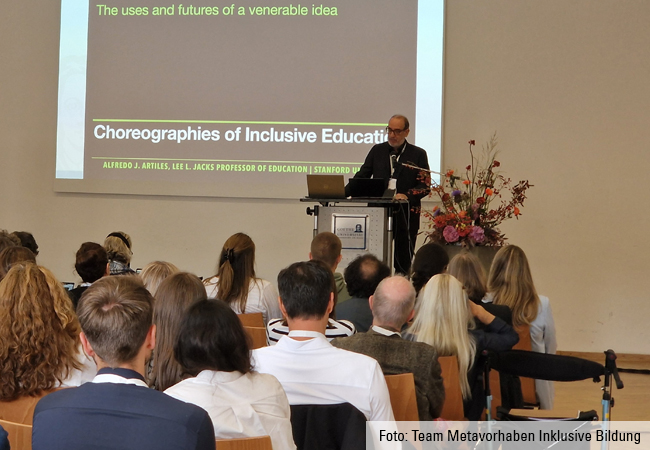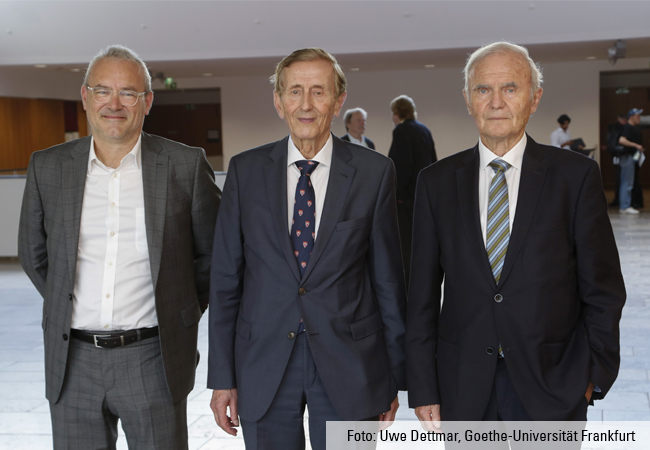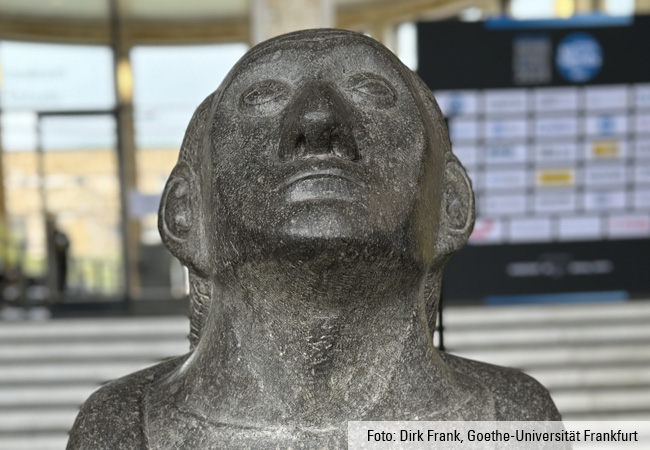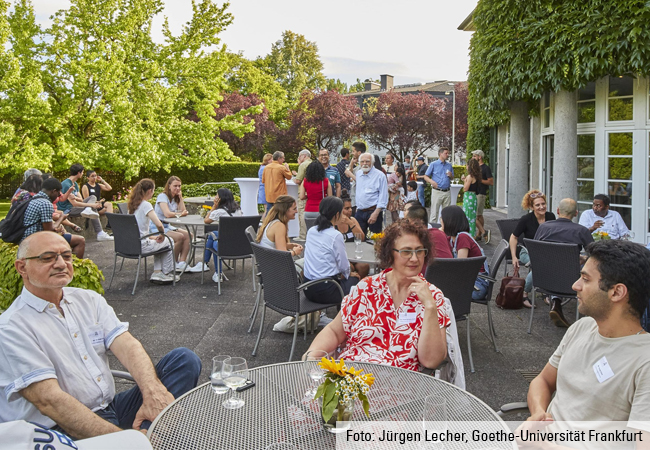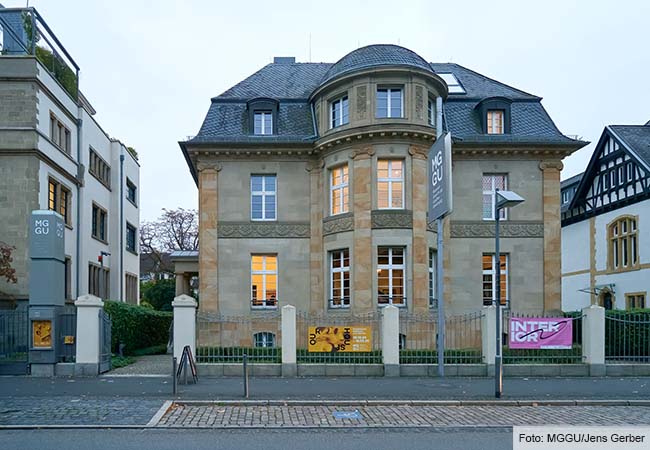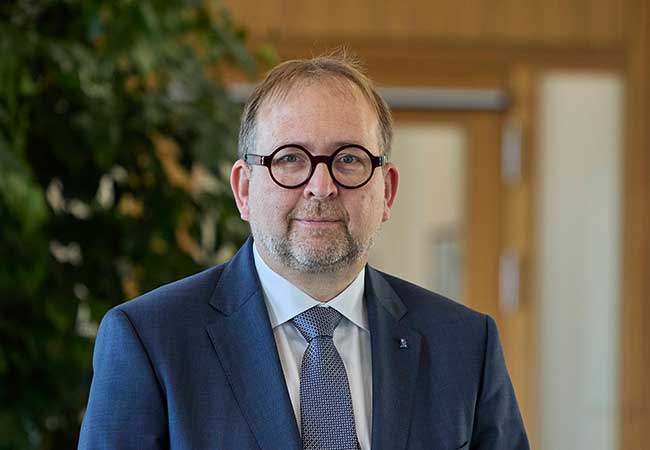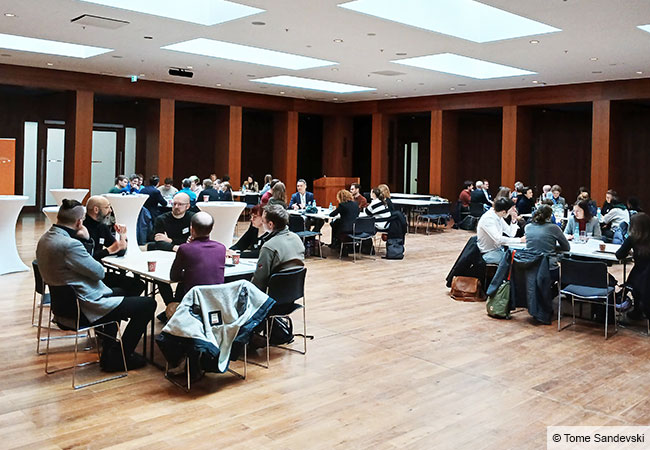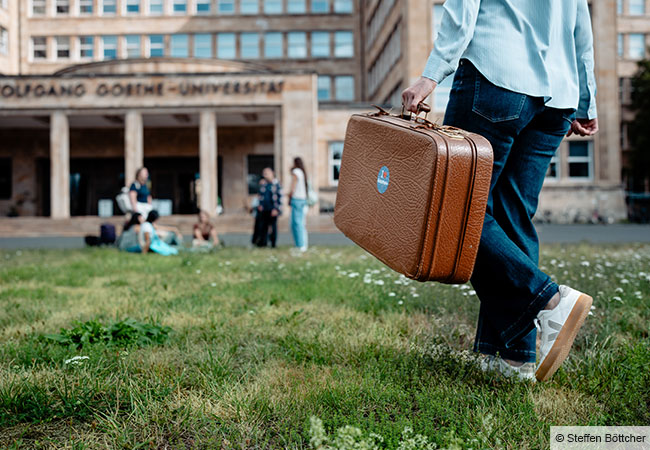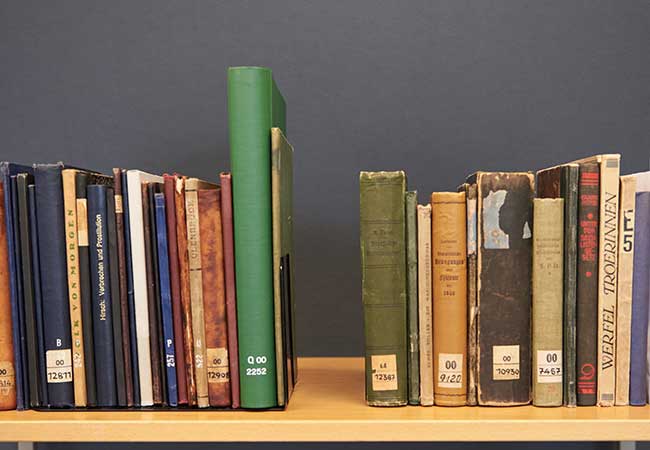
Restitutions of this magnitude are rare: Johann Christian Senckenberg University Library at Goethe University Frankfurt has handed over 44 volumes from its holdings to Friedrich Ebert Foundation. The relevant contracts were signed and the books handed over during a ceremony held at the university’s central library in Bockenheim. The volumes and their original owners had been identified as part of an extensive provenance research project, first set up in 2020 and funded by the German Lost Art Foundation. The project, whose first funding period ends in February 2025, examines the library’s old holdings to determine whether they include looted property formerly owned by people persecuted by the Nazi regime. Some 80,000 volumes are being examined, more than 5,000 of them from the Offenbach Archival Depot (OAD), which the US military government established after World War Two to identify the (mostly Jewish) people from whom the books, manuscripts and ritual objects had been looted during the Nazi era. By 1948, OAD had restituted numerous volumes; the remainder was handed over to the state of Hesse and ended up in the Frankfurt Municipal and University Library. Of the 44 volumes handed over to Friedrich Ebert Foundation, 42 originate from OAD. The other two are an acquisition from an antiquarian bookshop in the 1960s and a book that ended up in one of the predecessor libraries in the 1930s or 40s.
The moral obligation of return
“We have a moral obligation to check the legality of the additions that were made to the library’s holdings at that time and, if we confirm a case of looted property, to initiate the return to the heirs,” Daniela Poth, Head of the University Library, said at the handover ceremony. “I am delighted that we were able to restitute these 44 volumes to Friedrich Ebert Foundation today. Provenance research will continue to occupy us in the future, and it is very likely that additional restitutions will follow.” The research to date shows that other holdings of the former Municipal and University Library also contain looted property, and a follow-up project for further provenance research has already been approved.
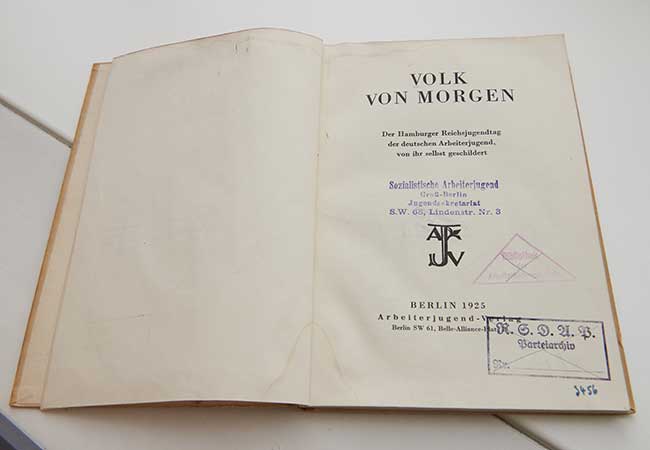
The 44 books that originally belonged to social democratic associations or trade union libraries and schools will be transferred to the library of Friedrich Ebert Foundation’s Archive of Social Democracy. The foundation centrally collects the holdings identified as Nazi-looted property from predecessor institutions and organizations of today’s Social Democratic Party of Germany (SPD) and, more recently, the German Trade Union Confederation (DGB). Friedrich Ebert Foundation’s special library on the history of the German labor movement sees itself in the tradition of both the SPD party library of 1901, whose holdings were handed over to the foundation in 1969, and the labor movement’s libraries, organized in the General German Trade Union Federation [Allgemeiner Deutscher Gewerkschaftsbund, ADGB] confederation of German trade unions (1919-1933), says Olaf Guercke, a specialist at Friedrich Ebert Foundation. “Working with stories about losses resulting from Nazi book theft makes the history of persecution of workers, trade unionists and social democrats and their institutions by the Nazi dictatorship more visible and tangible. As an archive of social democracy, we are committed to this history, while as an academic library, we can guarantee the books’ permanent availability,” says Dr. Anja Kruke, Friedrich Ebert Foundation’s Archive Director. With 1.1 million media units – mostly consisting of books and journals – the foundation’s archive is the largest collection of its kind in the world.
Provenance research uncovers context
The books that have now been restituted mainly consist of political literature from the first half of the 20th century. “The Nazi libraries were very interested in these books,” explains Daniel Dudde. He is working on the provenance research project together with his colleague Darleen Pappelau and has examined all the stamps and entries in the books, researching their background and documenting the results. Not every book will fill a gap in Friedrich Ebert Foundation’s collection. Given that many were published in large editions, it is not unlikely that some are already available. But this does not make the returned books any less important: the provenance research results are invaluable, as they meticulously document the ownership changes laid out by the sequence of handwritten entries, signatures or bookplates. “This is how restitution becomes an active culture of remembrance: the team at Frankfurt University Library has done a great job and handed over the collection in a wonderfully systematic manner,” says Guercke.
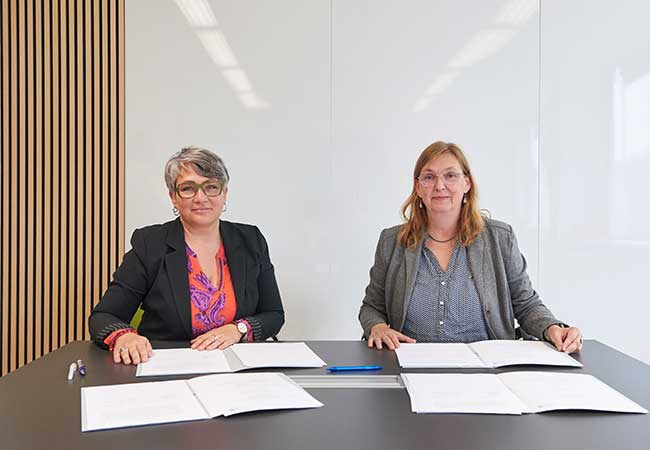
Take, for example, the publication “Volk von morgen: der Hamburger Reichsjugendtag der Deutschen Arbeiterjugend, von ihr selbst geschildert” [People of tomorrow: the German Workers‘ Youth Hamburg Reich Youth Day, as described by the youth themselves]: By analyzing labels, stamps and handwritten notes, the 95-page transcript traces how the book was looted from the library of the Berliner Arbeiterbildungsschule [workers‘ education school] and incorporated into the NSDAP party archive. Such provenance can constitute a reason to take a closer look at the history of the social democratic workers‘ education school, for example.
Jewish communities, Masonic lodges, trade unions and individuals among recipients of restitutions made to date
The returned books do not simply disappear from the University Library, explains Dudde: Their respective entry in the database is retained, identified as “looted property” and supplemented with the information that the restitution has been made – and, if the recipient agrees, to whom. So far, a total of 20 volumes have been restituted as part of the project: to Jewish communities, Masonic lodges, another trade union as well as individuals.
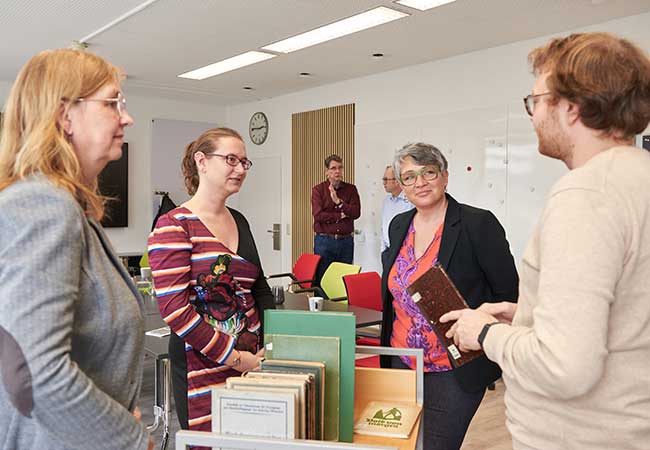
Frankfurt University Library emerged from the former municipal library, whose beginnings date back to the 15th century. When Goethe University was founded in 1914, the municipal library and four other Frankfurt libraries took over the functions of a university library. In 1943, the library building was almost completely destroyed and a large part of the collection was lost. Two years later, in 1945, a new beginning was made, based on the merger of the municipal library with Rothschild library, the library for art and technology, the central medical library and the Manskopf Museum of Music and Theater History – to form “Frankfurt am Main City and University Library”. In 1964, Senckenberg Library’s holdings were moved into the same building. The two libraries then merged in 2005, creating today’s Johann Christian Senckenberg University Library.
Dr. Anke Sauter

Funded
by the German Lost Art Foundation


